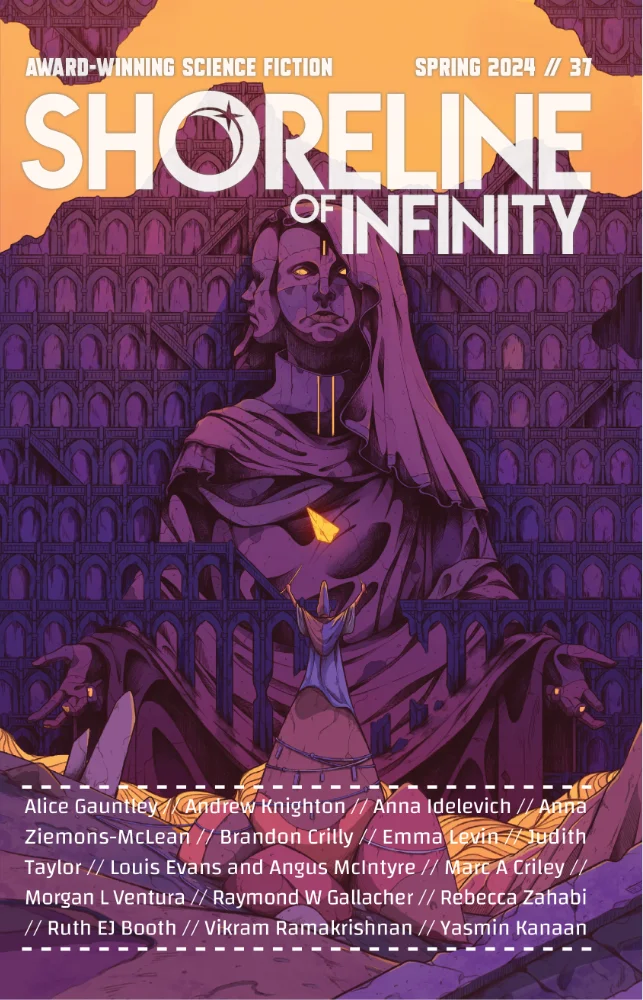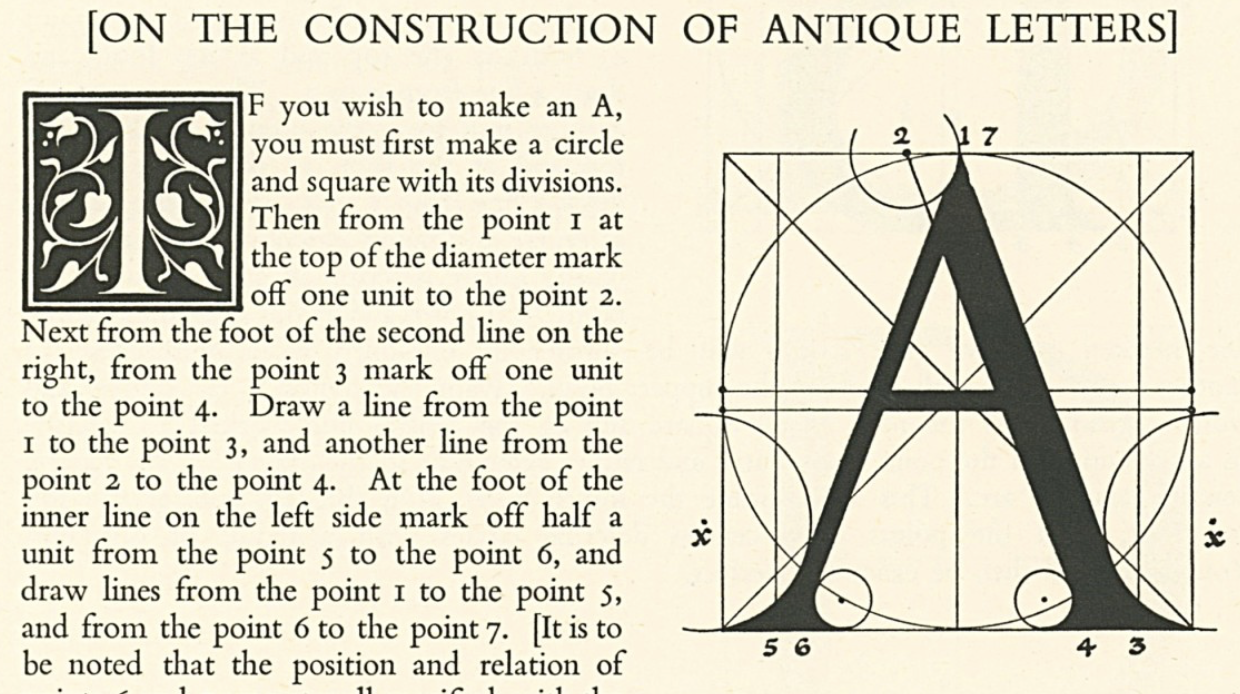Hume's characters
In the Oxford English Dictionary, definition II.12.a. of “character” is: “A description, delineation, or detailed report of a person's qualities. Now chiefly historical.” As an example, one R. Lucas wrote: “He undertook to write characters of Pitt and Bonaparte.” The originator of this practice — in some formal sense; surely people have been doing it as long as there have been people — seems to have been Theophrastus. He certainly gives us the term.
“A character,” in this sense, is what we might call a “character sketch” — a brief summary of a person’s essential nature or … well, character. (There’s not, it occurs to me, a close synonym.) One of the most fascinating features of Hume’s History of England is his “characters,” that is, his summative accounts of the key figures in his narrative, most of them monarchs. Sometimes Hume can do this briefly, and when he is brief he is often fierce, as in this “character” of Richard III:
The historians who favour Richard (for even this tyrant has met with partisans among the later writers) maintain, that he was well qualified for government, had he legally obtained it; and that he committed no crimes but such as were necessary to procure him possession of the crown: But this is a poor apology, when it is confessed, that he was ready to commit the most horrid crimes, which appeared necessary for that purpose; and it is certain, that all his courage and capacity, qualities in which he really seems not to have been deficient, would never have made compensation to the people for the danger of the precedent, and for the contagious example of vice and murder, exalted upon the throne.
That’s Richard, done and dusted. But other figures are more complicated. One of the most notable in this regard is his summary judgment of Henry VIII:
It is difficult to give a just summary of this prince's qualities: He was so different from himself in different parts of his reign, that, as is well remarked by lord Herbert, his history is his best character and description. The absolute, uncontrolled authority which he maintained at home, and the regard which he acquired among foreign nations, are circumstances, which entitle him, in some degree, to the appellation of a great prince; while his tyranny and barbarity exclude him from the character of a good one. He possessed, indeed, great vigour of mind, which qualified him for exercising dominion over men; courage, intrepidity, vigilance, inflexibility: And though these qualities lay not always under the guidance of a regular and solid judgment, they were accompanied with good parts, and an extensive capacity; and every one dreaded a contest with a man, who was known never to yield or to forgive, and who, in every controversy, was determined, either to ruin himself or his antagonist. A catalogue of his vices would comprehend many of the worst qualities incident to human nature: Violence, cruelty, profusion, rapacity, injustice, obstinacy, arrogance, bigotry, presumption, caprice: But neither was he subject to all these vices in the most extreme degree, nor was he, at intervals altogether destitute of virtues: He was sincere, open, gallant, liberal, and capable at least of a temporary friendship and attachment. In this respect he was unfortunate, that the incidents of his reign served to display his faults in their full light: The treatment, which he met with from the court of Rome, provoked him to violence; the danger of a revolt from his superstitious subjects, seemed to require the most extreme severity. But it must, at the same time, be acknowledged, that his situation tended to throw an additional lustre on what was great and magnanimous in his character: The emulation between the emperor and the French king rendered his alliance, notwithstanding his impolitic conduct, of great importance in Europe: The extensive powers of his prerogative, and the submissive, not to say slavish, disposition of his parliaments, made it the more easy for him to assume and maintain that entire dominion, by which his reign is so much distinguished in the English history.
One of the most Humean elements of this account — and one of the wisest — is his insistence that circumstances conspire to reveal certain aspects of a person’s character, with the implication that in different circumstances the person’s career could have been very different. And since circumstances are always subject to change — “Events, my dear boy, events” — one cannot safely write a person’s character until he or she is dead.
Among those circumstances is, of course, the very fact of kingship itself. James II, for instance, is someone who could have been admirable if he had not been king: “He had many of those qualities, which form a good citizen: Even some of those, which, had they not been swallowed up in bigotry and arbitrary principles, serve to compose a good sovereign.” (By “bigotry and arbitrary principles,” Hume means, of course, James’s Catholicism.) And:
In domestic life, his conduct was irreproachable, and is entitled to our approbation. Severe, but open in his enmities, steady in his counsels, diligent in his schemes, brave in his enterprises, faithful, sincere, and honourable in his dealings with all men: Such was the character with which the Duke of York mounted the throne of England. In that high station, his frugality of public money was remarkable, his industry exemplary, his application to naval affairs successful, his encouragement of trade judicious, his jealousy of national honour laudable: What then was wanting to make him an excellent sovereign? A due regard and affection to the religion and constitution of his country. Had he been possessed of this essential quality, even his middling talents, aided by so many virtues, would have rendered his reign honourable and happy. When it was wanting, every excellency, which he possessed, became dangerous and pernicious to his kingdoms.
If he had remained Duke of York, his vices or shortcomings would have been regrettable but not especially consequential; but when he became King, they ended the dynasty of the Stuarts. I find myself remembering, in this context, a comment Northrop Frye makes in his discussion of tragedy in Anatomy of Criticism:
Aristotle's hamartia or “flaw,” therefore, is not necessarily wrongdoing, much less moral weakness: it may be simply a matter of being a strong character in an exposed position, like Cordelia. The exposed position is usually the place of leadership, in which a character is exceptional and isolated at the same time, giving us that curious blend of the inevitable and the incongruous which is peculiar to tragedy.
“Inevitable” because of the circumstance, the position; “incongruous” because one can easily imagine circumstances in which that particular person had been not cursed but blessed, not ruined but flourishing. Hume is exceptionally attentive to this irony of human life.
One thing Substack has done very well (from their perspective, that is): Get people who write on Substack to link and respond only to other people on Substack. It’s basically a multi-level marketing scheme, though wholly voluntary.
Paul Kingsnorth says “everything is myth,” which is true, but if you want to understand how myth functions, maybe you should read my recent essay on the mythical method. Just a suggestion. Kindly meant.
“Informed but Not Absorbed” is my new post for my Buy Me a Coffee supporters.
Hume puts his cards on the table
I mentioned in an earlier post Hume’s purpose in writing this history — or what anyway I believe to have been his purpose: To account for and celebrate (a) the diminishment of the rule of superstition and enthusiasm and (b) the corresponding rise of “civility and sciences.” This purpose can only be fulfilled if Hume follows certain practices in assessing evidence.
Look for instance at his account of the rise and fall of Joan of Arc, in Volume II. Hume writes long paragraphs, but they consistently manifest a beautiful architecture, so I will here quote the whole of the first paragraph of his account:
In the village of Domremi near Vaucouleurs, on the borders of Lorraine, there lived a country girl of twenty-seven years of age, called Joan d’Arc, who was servant in a small inn, and who in that station had been accustomed to tend the horses of the guests, to ride them without a saddle to the watering-place, and to perform other offices, which, in well-frequented inns, commonly fall to the share of the men servants. This girl was of an irreproachable life, and had not hitherto been remarked for any singularity; whether that she had [not] met with an occasion to excite her genius, or that the unskilful eyes of those who conversed with her, had not been able to discern her uncommon merit. It is easy to imagine, that the present situation of France was an interesting object even to persons of the lowest rank, and would become the frequent subject of conversation: A young prince, expelled his throne by the sedition of native subjects, and by the arms of strangers, could not fail to move the compassion of all his people, whose hearts were uncorrupted by faction; and the peculiar character of Charles, so strongly inclined to friendship and the tender passions, naturally rendered him the hero of that sex, whose generous minds know no bounds in their affections. The siege at Orleans, the progress of the English before that place, the great distress of the garrison and inhabitants, the importance of saving this city and its brave defenders, had turned thither the public eye; and Joan, inflamed by the general sentiment, was seized with a wild desire of bringing relief to her sovereign in his present distresses. Her unexperienced mind, working day and night on this favourite object, mistook the impulses of passion for heavenly inspirations; and she fancied, that she saw visions, and heard voices, exhorting her to re-establish the throne of France, and to expel the foreign invaders. An uncommon intrepidity of temper made her overlook all the dangers, which might attend her in such a path; and thinking herself destined by Heaven to this office, she threw aside all that bashfulness and timidity, so natural to her sex, her years, and her low station. She went to Vaucouleurs; procured admission to Baudricourt, the governor; informed him of her inspirations and intentions; and conjured him not to neglect the voice of God, who spoke through her, but to second those heavenly revelations, which impelled her to this glorious enterprize. Baudricourt treated her at first with some neglect; but on her frequent returns to him, and importunate solicitations, he began to remark something extraordinary in the maid, and was inclined, at all hazards, to make so easy an experiment. It is uncertain, whether this gentleman had discernment enough to perceive, that great use might be made with the vulgar of so uncommon an engine; or, what is more likely in that credulous age, was himself a convert to this visionary: But he adopted at last the schemes of Joan; and he gave her some attendants, who conducted her to the French court, which at that time resided at Chinon.The key point to be noted here is Hume’s refusal even to entertain the possibility that Joan was indeed inspired by God. He unhesitatingly gives a psychological account: “Her unexperienced mind, working day and night on this favourite object, mistook the impulses of passion for heavenly inspirations.” It is noteworthy that he doesn’t accuse her of lying, nor suspect that she was in someone else’s control. That, I assume, is because her subsequent conduct — especially when tried, convicted and burned at the stake — is hard to reconcile with either of those explanations.
But in any case, here is where he pulls back the curtain to explain to his readers one of the fundamental assumptions of his historiography:
It is the business of history to distinguish between the miraculous and the marvellous; to reject the first in all narrations merely profane and human; to doubt the second; and when obliged by unquestionable testimony, as in the present case, to admit of something extraordinary, to receive as little of it as is consistent with the known facts and circumstances.This is carefully put. To understand Hume’s point here, we need to make a distinction that I learned from the philosopher Alvin Plantinga, between metaphysical and methodological naturalism.
Metaphysical naturalism is the belief that the “natural world” is all there is. No gods, no spirits, no secret causes, just the material cosmos.
Methodological naturalism is agnostic on the question of whether there is something beyond the material cosmos — as philosophers like to say, it “brackets” that question, and pursues its intellectual and scholarly inquiries without reference to any spiritual or trans-material cause. For instance, I wrote for a general audience a biography of C. S. Lewis, and while I might in my heart believe that God raised up C. S. Lewis to confute the infidels and persuade the uncertain to follow Jesus, that thought could play no part in in the story I told. It might well be that a non-Christian would be unlikely to write the kind of book I wrote, but a non-Christian could have. There’s nothing affirmed in that book that requires, for its composition or its acceptance, religious belief. And that was intentional on my part: I strategically adopted methodological naturalism.
Hume’s argument in the “business of history” passage cited above is not that the divine inspiration of Joan is impossible — though in fact Hume believed it impossible, or at least so improbable that the idea should be ignored — but only that it is not the job of the historian to deal in such matters. At least, this is true if the historian is narrating political and social history, i.e., “merely profane and human” matters.
But why should Hume adopt this methodological naturalism? I have my own reasons for doing so, when I do so, but what reasons had Hume?
Because he thinks that societies which are free from the enthusiasm and superstition that characterize religious belief are happier societies. That is, setting aside the question of whether religious belief is true or not, Hume thinks that less religious societies are happier ones. Hume seems to think that even if God exists, which in his view is almost certainly not the case, there is no reason to think that God’s interests are compatible with the interests of human beings who must live with one another.
In the concluding passage of his history’s second volume that I wrote about in my last post, Hume says of the “barbaric” millenium-and-a-half that he has just described,
Nor is the spectacle altogether unentertaining and uninstructive, which the history of those times presents to us. The view of human manners, in all their variety of appearances, is both profitable and agreeable; and if the aspect in some periods seems horrid and deformed, we may thence learn to cherish with the greater anxiety that science and civility, which has so close a connexion with virtue and humanity, and which, as it is a sovereign antidote against superstition, is also the most effectual remedy against vice and disorders of every kind.The superstition and enthusiasm that accompany religion bring with them “vice and disorders of every kind,” which is why even the “marvelous,” as opposed to the “miraculous,” needs to be credited only grudgingly. (Don’t let people get excited about strange events! It’s bad for them and bad for the rest of us.) But when those powers are replaced by “science and civility,” then you get “virtue and humanity” and therefore a stronger, better grounded, more just social and political order. And a better social and political order is the object at which the philosophic historian aims.
The price of liberty from squirrels is eternal vigilance.

Wonderful meal tonight at Segovia Wine Bar — a tiny family-owned place in downtown Waco. If you’re in the area, do please check them out.
I put that question — why should people trust you? — to the pair at the end of my interview. [Arianna] Huffington said that the difference with this AI health coach is that the technology will be personalized enough to meet the individual, behavioral-change needs that our current health system doesn’t. [Sam] Altman said he believes that people genuinely want technology to make them healthier: “I think there are only a handful of use cases where AI can really transform the world. Making people healthier is certainly one of them,” he said. Both answers sounded earnest enough to my ear, but each requires certain beliefs.
“Earnest”? They didn’t answer the question! Good grief, Charlie. Follow up.
Matt Milliner: “Never trust an image — or a savior — without wounds.”
Escaramuza charra sounds, and looks, amazing.

Hume and literature
As previously indicated, I will eventually return to Moonbound, but I need to think some things through first. For now, let’s go back twelve thousand years or so and revisit David Hume’s History of England.
When Hume was writing his History of England, the word “literature” only occasionally referred to a body of texts, or a kind of text; instead, it typically meant something like “learning.” For example, Samuel Johnson in his Life of Milton says that Milton’s father “had probably more than common literature,” because Milton addressed a complex Latin poem to him. The meaning here is not far from our “literacy.” When a person not only read but wrote, especially for publication, then that person would be “a man of letters,” or “devoted to the life of letters,” etc.
Today “literature” means something more like “poetry, fiction, drama, and sometimes essays” — what might have been called in some earlier time belles lettres, fine letters, though the correspondence in meaning is rough rather than exact. Insofar as the learned had any concept of what we now call literature, it would certainly have included poetry, fiction, drama, and essays but also history and biography. Historians and biographers were composers of artful narratives and in that sense no different than the composers of novels and tragedies. Their material was different, but their objects and purposes often very similar.
Academic historians today distinguish what they do from “narrative history,” a genre practiced by non-academics — and they do this even on the rare occasions when they admire the narrative historians. See for instance Anthony Grafton’s forward to C. V. Wedgwood’s history of the Thirty Years War: it is obvious that he reveres Wedgwood but equally obvious that he understands what she does as something quite distinct from what he does. But in the 18th century, readers and writers alike would not have had such clear distinctions in mind. They would have evaluated Hume’s History of England and Gibbon’s Decline and Fall by ways and means quite close to those they would employ in evaluating a novel by Samuel Richardson.
And Hume and Gibbon expected that kind of attention. They worked very hard to get their facts right and to assess them accurately, but they also strove to achieve the virtues that novelists and dramatists and epic poets pursued: to portray vivid characters, to generate narrative momentum and tension, to resolve such tension satisfyingly.
Moreover — I have suggested this in my earlier posts — they saw the writing of historical narratives as a means of pursuing philosophical ends: the events and persons of the past serve as models, exemplars, and warnings. Historical figures enact philosophical positions and in so doing test them.
Has historical knowledge progressed since Hume? Do historians today have a sounder understanding than Hume did of the facts and events of the past? Of course. But our historians today have neither the literary nor the philosophical ambitions that drove Hume. And it is because he had those ambitions, and fulfilled them, that I am reading him now.
I love seeing that this style of SF cover art — so familiar to me from the paperbacks of my 1970s youth — isn’t yet dead.

political proverbs
Nothing good ever comes from indulging the egos of old men.
Nothing good comes from indulging the ego of any politician, but the you-can’t-tell-me-I’ve-seen-it-all arrogance of old men is especially dangerous.
If you want political success, it’s better to be fortunate in your enemies than in your friends. An incompetent enemy can do more for you than a devoted friend ever could.
When Congress will not do its job, attempts by the other two branches to do Congress’s job will always create more problems than they solve.
It is said that Marcus Aurelius had a servant whose sole talk was to whisper in his ear, “You are but a man, you will die.” Every Supreme Court justice should have a clerk whose job is to whisper “The more times you tell yourself that you’re not a legislator, the more effectively you hide from yourself your temptation to legislate.” Not as terse, but just as needful.
No one is less trustworthy in reporting on the Supreme Court than a periodical’s “Supreme Court reporter.”
There is no correlation between memes and votes.
People elect performers rather than genuine representatives because they think our social and economic system will continue to function without human intervention, like a solar-powered street light.
To put the same point otherwise: The besetting sin of the people who talk politics ceaselessly is a failure to take politics seriously.
It’s later than you think.
And perhaps the most contemporary of all, this 1931 portrait of Kay Francis, who, though largely forgotten today, was a huge star at the time.

But Steichen could also do more casual portraits, as in this wonderful shot of G. B. Shaw — an early one.

Sometimes he would use this formal-but-not-theatrical mode for Hollywood stars, as in this portrait of that paragon of elegantly sexy manhood, Gary Cooper.

And here’s Thomas Mann.

